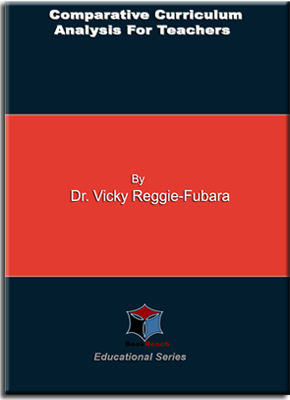
Preface
This book is a result of a high degree of stimulation received during my lessons with my students on Comparative Curriculum Analysis at the University of Port Harcourt. When I took up this course we discovered that there was little or no material around in this area for us to start with. So I decided to put a few things together to acquaint the students with development of materials in this area. What follows, therefore, is a modest effort to put students, by way of direct experience, through various stages involved in the analysis of curriculum materials.
The concept of curriculum analysis, as we know, refers to the process of breaking up curriculum materials into their component parts to enable the analyst to know how the various components are contributing to the overall intention of a given course. Many models used in this process are put forward for the purpose of acquainting the readers with other methodologies. This would also help them acquire the skills of Comparative Curriculum Analysis which would enable them in turn to possess a better footing in this field.
Curriculum analysis is useful both for curriculum design and decision-making in education. It is also useful for teaching, as it acquaints them with the structure of the materials they teach. It is hoped that this contribution will help students as well as teachers in Comparative Curriculum Analysis skills.
Introduction
This book is a modest effort by the author to provide a practical guide of Comparative Curriculum Analysis in universities. Such a course, approached theoretically, appears very abstract and very difficult to grasp. As such the author thinks, and quite seriously too, that the only way to effectively inculcate, as well as develop skills in the analysis and evaluation of curriculum materials would be the following:

In 1961, Dr. Vicky Reggie-Fubara had her Cambridge School Certificate in (8 subjects), awarded by the University of Cambridge, United Kingdom with distinctions in English Literature, History and Bible Knowledge. She got married shortly after this on the 5th of July 1962 as was required by Tradition for the Girl Child.
After settling down to married life, she enrolled locally at the College of Education, Port Harcourt, Nigeria for her early teachers' training and graduated with distinctions. In 1976, she taught History and English at Stella Maris College, Port Harcourt, Nigeria. Early 1978, she went to the Moray House College of Education, Edinburgh, Scotland where she did an Advanced Diploma in Educational Management and Administration. She later left Scotland at the end of her course for University of Sussex, Falmar, Brighton, England where she took her Bachelor's degree in Guidance and Counseling. She immediately went to her graduate work in the same University and graduated in 1981 with a Masters Degree in Curriculum Studies. Later she did a Ph.D in Curriculum Studies at the University College, Carddiff Wales, United Kingdom.
Currently, she lectures at the University of Port Harcourt, Department of Curriculum Studies and Educational Technology, Port Harcourt, Nigeria, as a Senior lecturer. Before joining the University, she served at the Ministry of Education, Port Harcourt, Nigeria, as a Senior Inspector of Education in-charge of Curriculum Development Unit.
She has had immeasurable experiences as an Educator both in Nigeria, United Kingdom and in fact the Diaspora. She has published several articles in learned journals as well as co-authored books.
Her Other Titles Include-